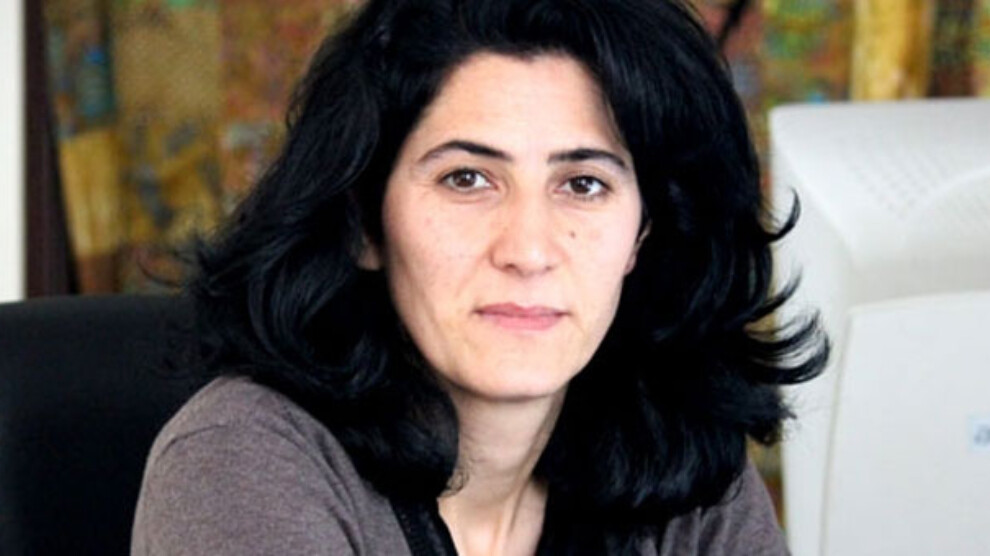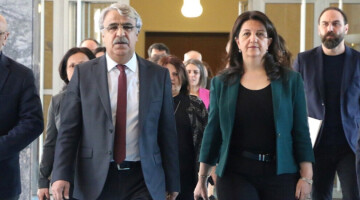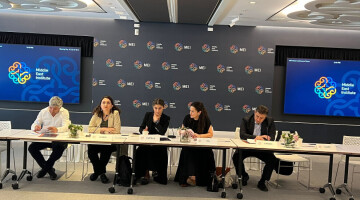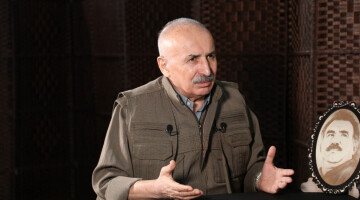In a long feature titles "The systemic crisis demands an alternative intervention.
The Rojava Revolution has given birth to a new society", Nilüfer Koc, Kurdistan National Congress (KNK) writes: "Antonio Gramsci once remarked, 'The crisis consists in the fact that the old is dying and the new cannot be born.' That statement perfectly describes the current global situation. In fact, the capitalist system today finds itself in a crisis so deep that it can no longer control or manage it. It began when the bipolar world system between the United States and Russia (then the Soviet Union) disintegrated. Since the 1990s, wars and conflicts have increased in number worldwide, and now all humanity is facing enormous challenges."
The text, published in the daily Italian paper Il Manifesto, continues: "In the Middle East, the crisis manifests in the condition of the region’s nation-states. Turkey, Iran, Syria, Iraq, Libya, Yemen, Egypt, Tunisia, Afghanistan, Pakistan, and the others are all struggling for survival yet at the same time are behaving ever more aggressively toward their own people, who are fighting for their rights and freedom. Considering all the actors who have a hand in this omnipresent crisis, one can certainly speak of it as a third world war. The Arab Spring was an attempt at social rebellion against the region’s rulers, but unfortunately it failed: instead of bringing about profound democratic change, it led only to changes at the top in existing regimes, in line with the capitalist world system."
The text continues: "In his discussion, Öcalan came to the conclusion that real socialism had ultimately failed because of its inadequate analysis of the phenomenon of power. Real socialism would not have failed if the socialists had built their system outside the state and power, but as it was, power and power-oriented thinking and acting in left liberation movements led to their collapse. So by contrast, Öcalan’s paradigm rejects both. Its goal is the liberation not only of a class or an oppressed people but of the entirety of a society.
For Öcalan, the philosophical idea underlying democratic confederalism is a radical critique of capitalist modernity based on the paradigm of power. For him, building democracy and forming a society are not tied to the goal of achieving power. “My idea of democratic confederalism is … comprehensive. For me it means the independent democratic organization of society without a claim to power,” he says. He sees the prevailing global chaos and its worsening in the Middle East as an opportunity to build democratic confederalism. Its implementation in Kurdistan is to go hand in hand with a democratization of the four states that act as colonial powers in the areas of Kurdish settlement. Clearly, he intends the concept of democratic confederalism is not solely for Kurdistan but beyond Kurdistan to the entire Middle East.
Democratic transformation of a colonial state using the example of Syria
Let’s look at this whole thing more closely, using the example of the Syrian state. Of the four parts of Kurdistan, the smallest is located within the Syrian national territory. Like Kurds elsewhere in Kurdistan, the Kurds living in Syria have always been subject to persecution by the central government. As a result of developments next door in northern Iraq in the early 1990s, which led to the establishment of a no-fly zone, the Syrian regime increased its repression of Kurds in its own country. When Öcalan had to leave Damascus on October 9, 1998, after nineteen years, Bashar al-Assad finally formed an alliance with Turkey, and Ankara and Damascus thus formed a common front, united in the common goal of solving “the Kurdish problem” once and for all.
On March 12, 2004, after a football game in Qamişlo, the Syrian Ba’ath regime killed thirty-two Kurds. It intended the massacre to intimidate the Kurdish Syrian population, because in neighboring South Kurdistan (northern Iraq), after the fall of Saddam Hussein, Kurds were granted autonomy. But after the massacre, an uprising broke out that spread throughout Rojava and even to the Kurds in Aleppo and Damascus. It was the first mass uprising in Rojava. Afterward the Kurds established their first armed defense committees, the predecessors of today’s YPG/YPJ defense units. Moreover, from 1979 to October 9, 1998, Abdullah Öcalan had taught more than 40,000 people in the PKK party academies in Syria, which also motivated Kurds in Rojava to organize—its role should not be underestimated. Öcalan had also worked hard to build friendships with representatives of Arabs, Assyrians and Armenians, which laid the foundation for the Rojava revolution that broke out in 2012."
The full article was translated in English by Janet Biehl and published by Peace in Kurdistan Campaign and can be read here














